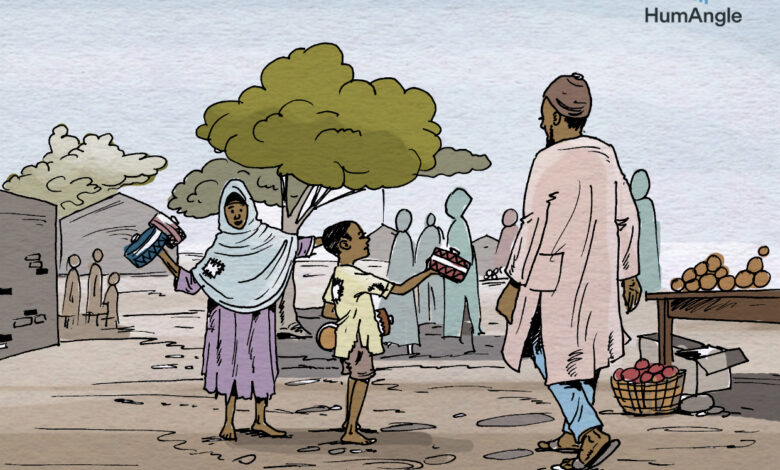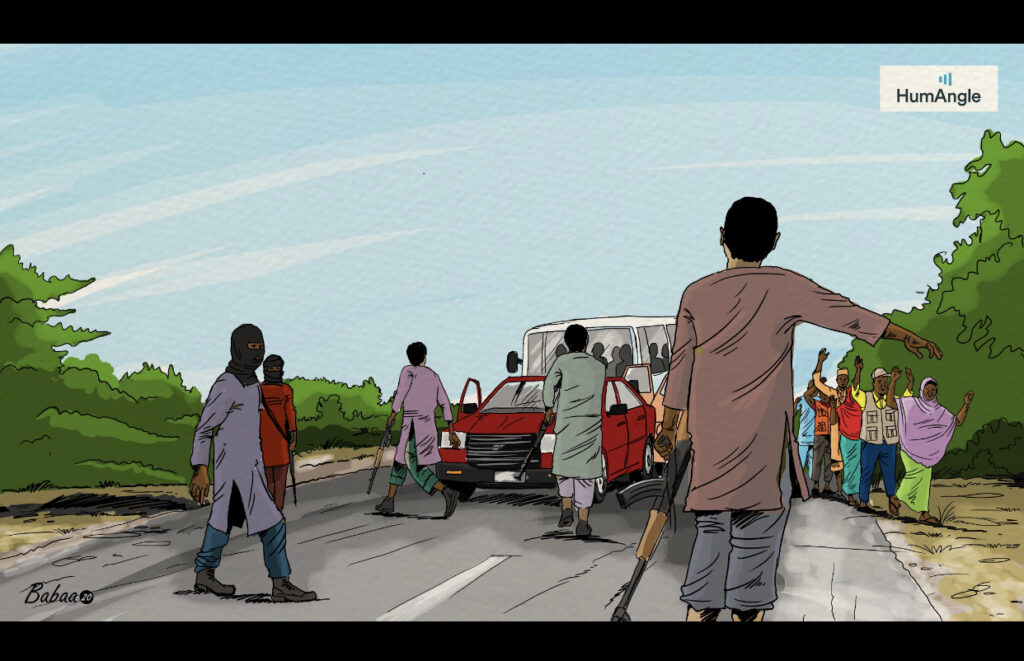Children’s Day: As Insecurity Rages, Nigerian Children Are In The Line Of Fire
Since December 2020, 11,536 schools in Nigeria have been closed over abductions and other security concerns, according to the United Nations Children's Fund (UNICEF).

On May 27, Nigeria celebrates Children’s Day as it has done since 1964. In addition to the festivities and celebrations of Children’s Day, this date also serves to recognise that children have the right to health, education, and protection.
However, there is a cause for alarm over the safety of children in the country and the state of their education.
Nigeria continues to record daily cases of insecurity; kidnappings, and bullying leading to death. This is in addition to millions of out-of-school children.
Kidnappings of students for ransom by armed extremist groups and terrorists have become popular in northern Nigeria, with over 1,000 pupils abducted in 2021.
Occurrence
Since Dec. 2020, 11,536 schools in Nigeria have been closed due to abductions and security concerns, according to the United Nations Children’s Fund (UNICEF).
The UN Children’s Agency said 1,436 school children and 17 teachers have been abducted from schools, and 16 school children lost their lives. While the majority of the captives were released after negotiations, a few remain in terrorist captivity in bushes. Nigerian children have been subjected to the country’s decade-long terror battle and have suffered the impact.
Hundreds of schools in six states — Katsina, Kaduna, Zamfara, Niger, Sokoto, and Jigawa — were forced to close as a result of the kidnappings. The number of attacks not only rose, but also extended beyond Borno, Yobe, and other parts of Nigeria.
On April 14, 2014, 276 students of Government Girls Secondary School Chibok in Northeast Nigeria were abducted by a non-state armed group. Aside from the Chibok girls, the country has seen additional kids abducted, notably those in Niger State in Feb. 2021.
Since then, school attacks and student abductions – some of which result in their deaths – have become all too common.
Indigenous People of Biafra (IPOB), a separatist group that was labelled a terrorist organisation in 2018, is advocating for the creation of an independent state of Biafra in Nigeria’s Old Eastern Region, which includes the Southeast and parts of the South-south areas.
IPOB enforces sit-at-home orders to demand the release of their leader, Nnamdi Kanu, who is currently in detention and charged with treasonable felony, unlawful possession of arms, and illegal importation of broadcast equipment at a Federal High Court in Abuja. These sit-at -home order have prevented students in the region from writing exams and going to schools on Mondays.
Another attack occurred on Tuesday, May 17, 2022, when an explosion rocked Winners Schools in Kano, Northwest Nigeria, killing school children.
Also, about eight children were abducted by a terror group on Monday, March 28, on a train transporting passengers between Nigeria’s capital, Abuja, and Kaduna in the Northwest.
The attack on Bethel Baptist High School in Kaduna, Northwest Nigeria where 121 students were taken on July 5 and released in phases until Jan. 1, 2022, was prominent among the mass school abductions. The terrorists demanded N180 million from the parents before the students were released. One of them is still held captive.
On Sept. 1, 2021, about 73 students were also kidnapped from Government Day Secondary School in Kaya, Zamfara State, Northwest Nigeria; 15 students were kidnapped from College of Agriculture, Zamfara, Northwest Nigeria on Aug. 16. An undetermined number of pupils were abducted from the Federal Government College, Birnin-Yauri, Kebbi State, Northwest Nigeria on June 17; and 29 students from Greenfield University Kaduna, Northwest Nigeria were kidnapped on April 18. Five students were killed in the attack.
Further, over 13.5 million are currently out of school due to insecurity.

The plague of terrorism
Nigeria has moved to sixth place in the Global Terrorism Index (GTI) for 2022, up from fourth place in 2017.
Nigeria, Syria, and Somalia were the only nations among the ten most affected by terrorism to raise their score from 2020 to 2021, according to the report released by the Institute for Economics and Peace (IEP), an independent and non-profit think tank.
Total terrorism-related deaths in Nigeria declined to 448 in 2021, according to the data, the lowest figure since 2011.
Terrorist attacks soared by 49 per cent between 2020 and 2021, according to the research.
Ebenezer Omejiale, the coordinator of Advocates for Children and Vulnerable Persons Network, said the 2023 elections have caused the government to forget about the state and placed the country’s sanity in irresponsible hands.
He called for the domestication of the Child Rights Act as soon as possible as it is the only law protecting children.
“Children loitering around is an indicator that if nothing is done, we will be spawning armies in waiting,” he remarked.
According to him, making borders impermeable and upgrading the military is one method to counter the threat. “These offenders must be apprehended and brought to justice.”
“If we do not confront these threats and implement effective policies, not just policies on paper, we will be doomed. Across the country, there should be enough intelligent gatherings. We are unable to commemorate Children’s Day since the children are no longer alive,” he added.
Save the Children, in a communique made on May 26, 2022, urged the government, development partners, and Nigerians to ensure that the Child Rights Act is implemented quickly.
The non-governmental organisation requested that the government act quickly to adopt the Safe School Declaration.
“Security agents should be armed with instruments to safeguard minors from attack, and affected places should implement tighter security methods. Cattle ranching should be undertaken to avert cattle-herder crises, and additional security officers should be assigned to impacted areas to help prevent school attacks,” the it added.
Support Our Journalism
There are millions of ordinary people affected by conflict in Africa whose stories are missing in the mainstream media. HumAngle is determined to tell those challenging and under-reported stories, hoping that the people impacted by these conflicts will find the safety and security they deserve.
To ensure that we continue to provide public service coverage, we have a small favour to ask you. We want you to be part of our journalistic endeavour by contributing a token to us.
Your donation will further promote a robust, free, and independent media.
Donate HereStay Closer To The Stories That Matter




